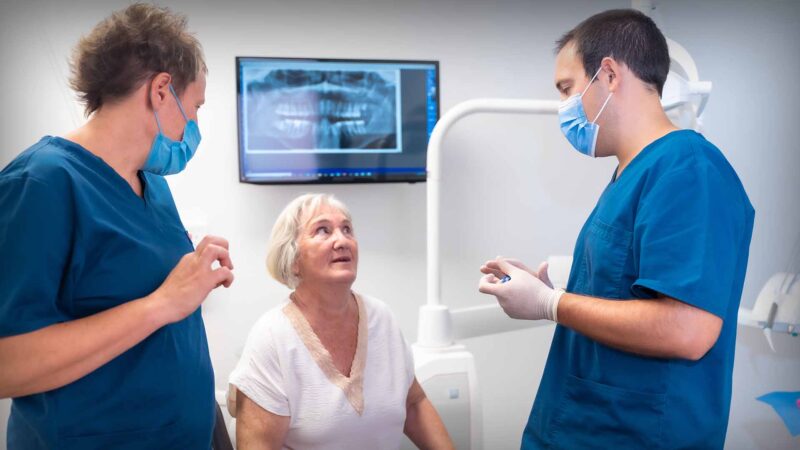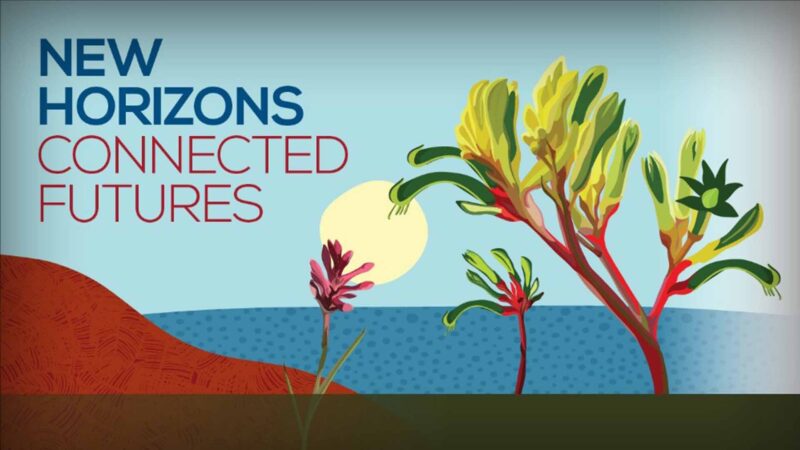Professor Creswell Eastman AO is a world-renowned endocrinologist with a primary interest in Iodine Deficiency Disorders. He is the Clinical Professor of Medicine at the University of Sydney School of Medicine and Consultant Emeritus to Westmead Hospital.
Professor Eastman recently spoke to Australian Health Journal about iodine deficiency in pregnancy preparation and the mother’s health during pregnancy. May is the time of the year for the Australian Thyroid Foundation’s (ATF) Thyroid Awareness Month and Professor Eastman spoke about why iodine deficiency has become an even greater risk in Australians in recent years. He stresses the importance of public health literacy and health care professionals (HCPs) having a better understanding of the disorders associated with iodine deficiency.
Recent research from The Lancet – March 2022 emphasises the consequences and risks of an inadequate amount of thyroid hormone at conception, during pregnancy and whilst breastfeeding.
‘Without an adequate amount of thyroid hormone mothers can be exposed to hypertensive disorders of pregnancy, including gestational hypertension and preeclampsia or eclampsia, which affect around 10% of pregnant women and are the leading causes of maternal and neonatal mortality worldwide. Mothers who suffer from hypertensive disorders during pregnancy are at increased risk of long-term cardiovascular consequences and hypertensive disorders in subsequent pregnancies. Evidence also indicates a risk of reduced cognitive ability to their offspring.
‘Knowing if you are genetically predisposed to Hashimoto’s or Graves’ Diseases, which are both thyroid autoimmune disorders is important to be aware of, to ensure all appropriate tests are ordered. Autoimmune disorders may predispose mothers to a thyroid problem during pregnancy’, says Professor Creswell Eastman, who also serves as the ATF’s Principal Medical Advisor.
‘Unnecessary risks to a pregnancy and the mother’s health during pregnancy and ongoing is something that can be avoided and prevented. Raising awareness and ensuring thyroid tests are ordered by GP’s, when couples are planning a family and when the pregnancy is confirmed are both essential.
You Might also like
-
A New Era in Primary Health Care Nursing
Coinciding with this year’s International Nurses Day, this week’s Federal Budget has had some significant outcomes for the primary health care, nursing workforce.
The Federal Budget delivered on 9th May 2023, APNA believes will strengthen Australia’s primary health care (PHC) system by addressing growing nursing shortages, seeing more nurses hired where they are needed, and better utilising the largest workforce in PHC of nearly 100,000 nurses to their full potential to reduce the pressure on the health system.
-
Dental and oral health care priorities for the elderly
In 2023, there are a number of changes occurring in dental services including the start of a new Senate inquiry and new registered nurses in residential aged care. Yet in the meantime there are gaps and delays in dental and oral health interventions for elderly Australians, unless training is more widely deployed.
Australian Health Journal spoke to Leonie Short, a dental therapist working for Seniors Dental Care Australia on what she considers are dental and oral health priorities for the elderly, based on her work in the aged, home and disability sectors.
-
Psychiatrists to discuss connectedness at RANZCP 2023 Congress
Next week, at the Perth Convention and Exhibition Centre, The Royal Australian and New Zealand College of Psychiatrists (RANZCP) meet for the RANZCP 2023 Congress on the theme of “New Horizons: Connected Futures”
Australian Health Journal spoke to current President-Elect Dr Elizabeth Moore and soon to be President, RANZCP about the Congress, as well as the recent Federal Budget announcements around mental health funding.



